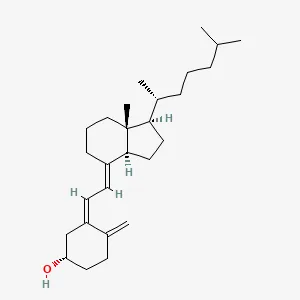
Vitamin D, often referred to as the “sunshine vitamin,” is a crucial nutrient that plays a multifaceted role in maintaining overall health and enhancing physical performance. Synthesized in the skin through exposure to sunlight, vitamin D can also be obtained from certain foods and supplements. Its significance extends beyond bone health, influencing various bodily functions that are vital for individuals leading active lifestyles. This essay explores the numerous benefits of vitamin D from a fitness and health perspective, highlighting its importance for athletes and fitness enthusiasts alike.
One of the primary roles of vitamin D is its contribution to bone health. It facilitates the absorption of calcium and phosphorus, two essential minerals required for maintaining strong bones. Adequate levels of vitamin D help prevent conditions such as osteoporosis and fractures, which are particularly concerning for athletes who put significant stress on their skeletal systems. Stress fractures, common in high-impact sports, can sideline athletes and hinder their performance. By ensuring sufficient vitamin D levels, individuals can enhance their bone density and reduce the risk of injury, allowing them to train effectively and compete at their best.
Beyond its role in bone health, vitamin D is essential for muscle function. Research indicates that vitamin D receptors are present in muscle tissue, suggesting that this nutrient directly influences muscle strength and performance. Studies have shown that adequate vitamin D levels correlate with improved muscle function, including enhanced strength and power output. For athletes engaged in strength training or explosive sports, such as sprinting or jumping, optimal muscle function is crucial for achieving peak performance. By supporting muscle contraction and recovery, vitamin D can help athletes maximize their training efforts and achieve their fitness goals.
In addition to its physical benefits, vitamin D plays a vital role in immune function. A robust immune system is essential for athletes who may be more susceptible to infections due to intense training regimens and potential exposure to pathogens during competitions. Vitamin D has been shown to enhance the production of antimicrobial peptides, which help the body fight off infections. Furthermore, it modulates inflammatory responses, reducing the risk of chronic inflammation that can arise from strenuous exercise. By supporting immune health, vitamin D helps athletes stay healthy and maintain consistent training schedules without interruptions due to illness.
The positive effects of vitamin D extend to mood regulation as well. Many individuals experience fluctuations in mood and energy levels, particularly during the winter months when sunlight exposure is limited. Vitamin D has been linked to improved mood and mental well-being, which can be particularly beneficial for those engaged in physically demanding activities. A positive mindset is crucial for athletic performance; it enhances motivation and resilience during challenging training sessions or competitions. By ensuring adequate vitamin D intake, individuals can support their mental health alongside their physical health.
For those focused on weight management or fat loss, vitamin D may offer additional benefits. Some research suggests that this nutrient can influence body composition by promoting fat loss while preserving lean muscle mass. This dual effect is advantageous for individuals looking to improve their physique while maintaining strength and functionality. Incorporating foods rich in vitamin D—such as fatty fish, fortified dairy products, and egg yolks—into a balanced diet can support these goals.
Incorporating vitamin D into one’s lifestyle can be achieved through various means. Sun exposure remains one of the most effective ways to boost vitamin D levels; however, factors such as geographic location, skin tone, and sun protection practices can impact synthesis. For those who may not receive adequate sunlight throughout the year or who have dietary restrictions, supplementation may be a viable option. Consulting with healthcare professionals can help individuals determine their specific needs regarding vitamin D intake.
The growing awareness of the importance of vitamin D has led many athletes and fitness enthusiasts to prioritize this nutrient in their diets. With an increasing understanding of its role in enhancing performance and preventing injuries, more individuals are recognizing the need for adequate levels of this essential vitamin. As research continues to uncover the broader implications of vitamin D on health and fitness, it becomes increasingly clear that this nutrient should not be overlooked.
In conclusion, vitamin D is a vital component of a healthy lifestyle that supports both physical performance and overall well-being. Its contributions to bone health, muscle function, immune support, mood regulation, and body composition make it an essential nutrient for anyone engaged in regular physical activity. By prioritizing adequate intake of vitamin D through sun exposure, dietary sources, or supplementation when necessary, individuals can harness its potential benefits to enhance their fitness journeys. Embracing this powerful nutrient as part of a holistic approach to health will empower individuals on their path toward achieving optimal performance while fostering resilience against illness and injury. With proper attention to vitamin D status, athletes and fitness enthusiasts alike can unlock new levels of potential in their physical endeavors while enjoying long-term health benefits.
Need your own dietary supplement manufacturer? Extremely competitive rates. We produce it all. Talk to us.
Comments are closed